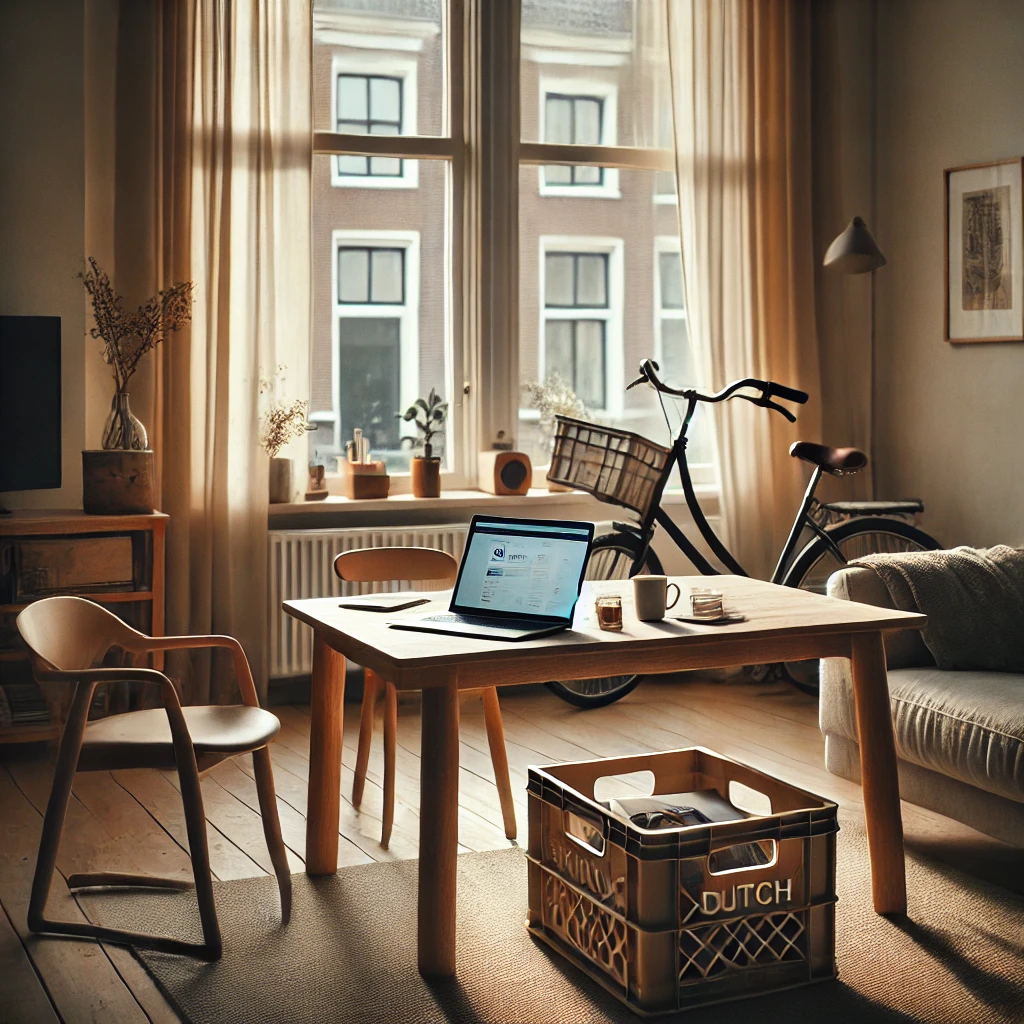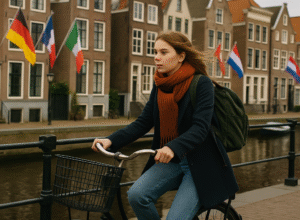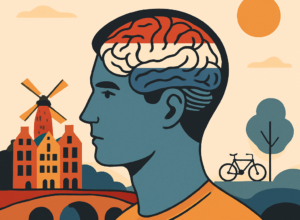There’s a moment that stays with me: a small, quiet evening in a friend’s living room. A cup of tea in hand, slippers by the radiator, conversation meandering through long silences. Nothing remarkable happened. But later, cycling home through the dusk, I realized I had felt something unfamiliar—a kind of ease that wasn’t trying to impress or entertain. Just being. The Dutch might call it gezellig, but that word, beloved as it is, barely scratches the surface.
Living in the Netherlands has reshaped me in ways I didn’t expect. Not through grand revelations, but through language—through the steady hum of ideas that don’t quite translate, but seep into you all the same.
These words aren’t just linguistic quirks. They are philosophies. Mirrors. They’ve asked me to unlearn and reimagine what it means to belong, to show up, to take space—or not.
Let me share a few.
Nuchter: Clear-eyed, Unadorned, Still
The word nuchter translates literally to “sober,” but culturally, it reaches further. It suggests a cool head, a practical spirit. Don’t exaggerate. Don’t romanticize. See things plainly.
At first, it felt like a kind of emotional dryness. I was used to stories being celebrated with enthusiasm—big gestures, loud joy. But here, good news is met with a nod and a simple mooi zo. No one claps for themselves. There’s something deeply unflappable in it.
Over time, I came to see nuchterheid not as a lack of feeling, but a trust in what’s real. The quiet confidence to let something speak for itself. It’s a way of being rooted. There’s no need to shout what is already true.
I’ve started carrying this with me—not to dim my emotions, but to tether them. Like an anchor in fast-moving water.
Doe Maar Gewoon…: The Radical Act of Being Ordinary
There’s a phrase here that gets passed around like a proverb: Doe maar gewoon, dan ben je al gek genoeg. Just act normal; that’s crazy enough.
It used to make me bristle. My American upbringing taught me to stand out, to dream big, to express myself freely. So being told—however indirectly—to tone it down felt like a diminishment.
But in time, I saw the grace behind it. It isn’t about conformity for conformity’s sake. It’s about equality. About making room for everyone, not just the loudest voice. It invites a kind of humility I hadn’t practiced before—the kind that doesn’t erase the self, but quiets the ego.
That said, I still wear my shorts in winter, whereas most folks here rarely wear shorts even in summer. A small personal ritual, maybe a bit stubborn. But now it feels more like an offering than a statement.
Afspraak: The Intimacy of Intention
In the Netherlands, everything runs on appointments—afspraken. Spontaneity exists, but it’s carefully penciled in.
At first, I found it frustrating. I missed the casual pop-ins, the fluid, open-ended days. But then I realized what afspraak truly offers: the gift of being expected. When someone puts you in their calendar, they’re making space for you—not just in time, but in attention.
It taught me a new kind of care. Not the impulsive gesture, but the deliberate one. Love, here, is often practical. Quietly consistent. A meeting at 2:00 that starts on time and ends with a warm goodbye.
Schipper naast God: Captain, Next to God
There’s a saying: Schipper naast God—the skipper next to God. Traditionally, it refers to a ship captain’s authority, but more broadly, it gestures toward Dutch independence. A trust in one’s own judgment. A certain sovereignty of self.
It can be challenging, this cultural insistence on autonomy. Offers of help are sometimes declined with polite resolve. Advice, if unsolicited, can land poorly. Everyone is steering their own ship, thank you very much.
But there’s beauty in it, too. In the deep belief that each person is capable. That even a child on a bicycle in the rain can be trusted to know their way.
It’s taught me to back off. To listen more. To honor another’s path, even when it diverges from mine.
More Than Words
These aren’t just cultural traits. They’re invitations.
To slow down. To let go of performance. To trust the quiet. To respect boundaries. To value the everyday as something holy.
I came to the Netherlands looking for experience, for novelty. What I found instead were small, sturdy lessons in how to live more truthfully. They came not in grand gestures, but in untranslatable words—and the lives that embody them.
Maybe that’s the real gezelligheid after all.








